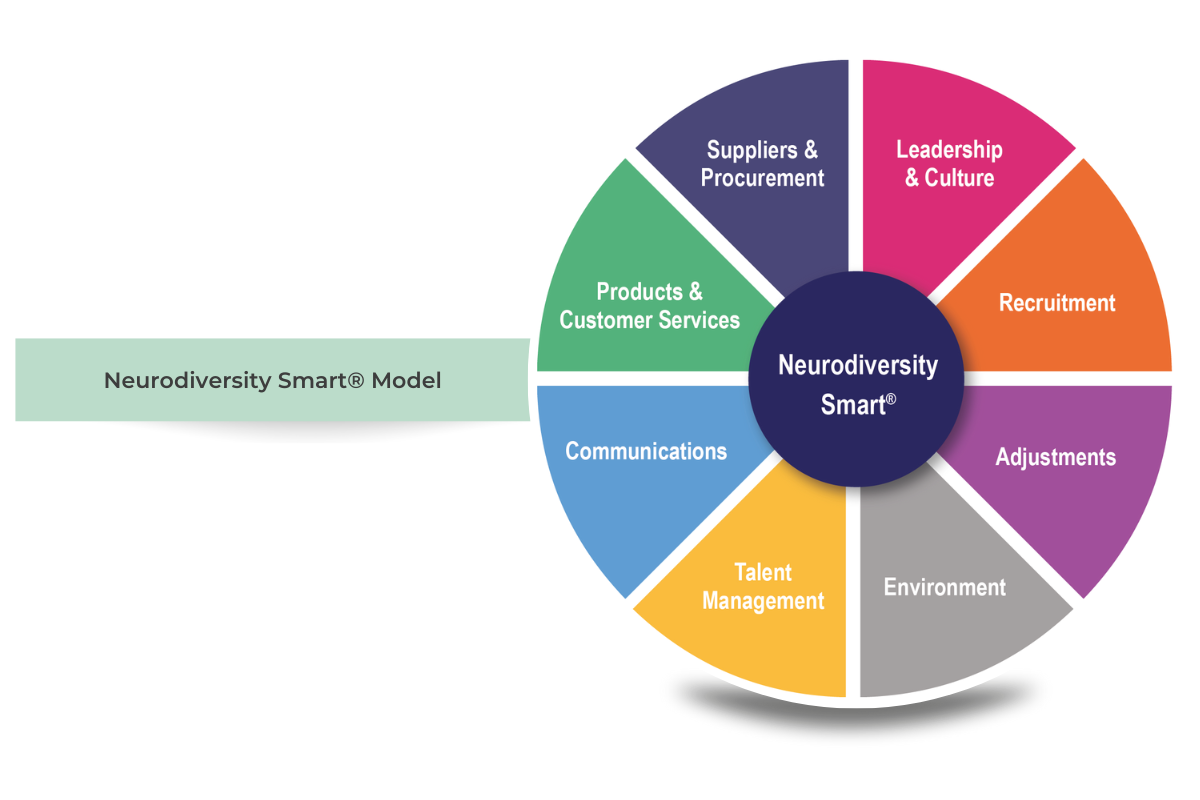Neurodiversity in Energy & Utilities
The energy and utilities sector has a critical role to play in powering the nation’s economy, and employs just over half a million people. However, demand for trained and talented employees increasingly outstrips supply in the industry. It is forecast that the sector will need to replace or retrain 48% of the current workforce between 2020 and 2030 (due to growth in demand, changing skill requirements and retirement), equating to 277,000 vacancies. Research has also identified an urgent need to address the lack of diversity in the industry.
For these reasons, 42 leading employers and stakeholders in the energy and utilities sector have agreed to work collaboratively to attract, recruit and retain more diverse talent to the sector as part of the Energy and Utilities Skills Partnership Workforce Renewal and Skills Strategy 2020-2025. However, there is little reference in this Strategy to neurodiversity. Neurodiversity relates to the different ways our brains are wired and process information. It is used to describe alternative thinking styles (such as Dyslexia, Dyspraxia, Dyscalculia, Autism and ADHD) which affect 15-20% of the population.
There is now a golden and urgent opportunity to put neurodiversity at the heart of equality, diversity and inclusion strategies in the energy and utilities sectors. A neuro-inclusive industry will be good for business. It can bring diversity of thought, innovation, and a positive culture as well as improved customer relationships.
Industry Predictions & Progress
The industry is predicting particular challenges in meeting future demand for engineering, digital, analytical, data science, cyber security and project management roles. Neurodivergent individuals often have skills relevant to these roles, including problem solving, technical and analytical skills, logic and attention to detail. Others have the skills needed for strategic and leadership roles, such as big picture thinking, creativity, adaptability and strong verbal skills. This is critical for building a pipeline of future leaders, to replace those coming to the end of their careers.
However, other sectors are competing for the same, or similar talent, often at higher rates of remuneration. In 2016–17, of the 82,000 graduates from STEM subjects in the UK, just 1% entered employment in the sector2. The Energy and Utilities Skills Partnership have identified that “boosting apprenticeships across the sector’s technical occupations is paramount. These new recruits will often fill key operational roles, and gain skills that are specific to the sector.” 1 in 4/5 apprentices are thought to be neurodivergent. To address skills shortages, the sector must become more attractive to young people, and those from diverse backgrounds, including the relatively untapped neurodiverse talent pool.
We are starting to see some good progress in pockets of the sector. For example, Foothold’s ‘Differently Wired Hub’ and ‘Engineering Neurodiverse Futures Programme’, funded by Neptune Energy, is supporting neurodivergent engineering students, apprentices, graduates and professionals to access and succeed within the profession. There are also some great examples of energy companies who are committed to neuro-inclusion. For example, Centrica told us why neuro-inclusion is important to them:
“Everyone is unique. At Centrica, we want everyone to use their diverse, unique experience to spark solutions that create a better colleague and customer experience and a sustainable world. We believe that an inclusive workplace, products and services are central to achieving that vision. From serving our customers better to reaching net zero, our ability to overcome challenges and seize opportunities is only possible if our team reflects the full diversity of our communities. Neurodiversity is key as we explore alternative solutions for our customers and our planet. That’s why our goal is to create a neuro-inclusive workplace where difference is celebrated, and everyone can be themselves and succeed. Working with Lexxic has provided us with invaluable expertise, structure and support, as we work to build a more inclusive and sustainable future.”
Becoming Neurodiversity Smart
Becoming neuro-inclusive requires leadership, tenacity and systemic and sustained change across your organisation. Lexxic’s Neurodiversity Smart maturity model helps guide organisations on their journey to neuro-inclusion:
We are thrilled that the first employer to gain Lexxic’s Neurodiversity Smart Accreditation was an energy company: Cadent Gas.
They told us that:
“Completing the self-assessment was really interesting, the questions were so helpful and made us look beyond the obvious. It was very thought-provoking and generated some great conversations. There are areas where we can improve and areas where we unexpectedly found pockets of great focus. The really humbling part for us as individuals completing the assessment, was discovering areas in the business where we have already made a difference with our employee community for disability, Thrive!”.
If you would like to join Cadent Gas and Centrica in making the sector more neuro-inclusive, we’d love to meet you. Lexxic can support you on every step of your journey, helping you understand what will work best for your organisation, implement creative solutions and evaluate their impact.
In the meantime, download our Neurodiversity Smart Employer Guide, which contains our top tips for becoming more Neurodiversity Smart!
This blog was written by…




